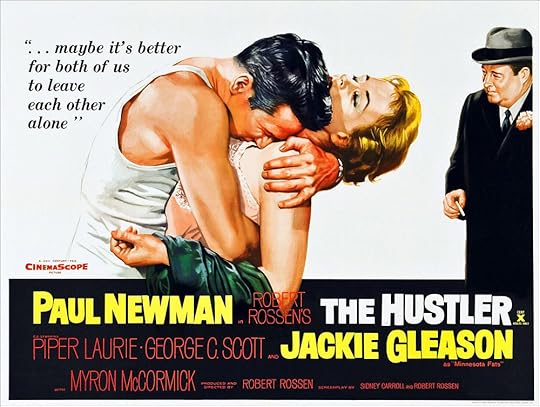Gerald DiPego's Blog, page 4
March 23, 2018
Time and Again
There are films I watch every two, three, four years, and some even sooner, some after a decade. Why watch a film you’ve seen when you know the story and all the surprises are gone?
If you enjoy a particular dinner at a restaurant, you’re almost certain to return, not the next night or even the next week, but you are very likely to go back and order that dish now and then because you can count on it to make you feel good. You remember the aroma and the taste and want to treat yourself.
Any one of my favorite, often-watched films, is certain to deliver, and to stir in me the familiar emotions that captured me the first time. I can count on that, and even though each of these favorite scenes is banked in my memory, I want to taste them again, and smile, and maybe mist over, maybe laugh or be shaken again.
I love this moment in “In the Heat of the Night.” Sidney Portier has been picked up as a murder suspect, just because he’s black and not from this southern town, and the sheriff asks him, in a threatening, browbeating manner, what work he does in that northern city he claims to be from. Portier answers in a strong voice, “I am a police officer.” What a great moment. It changes everything in the story. When I watch it again, and then again, I notice every detail, every expression of the players, I feel the verbal punch of those lines, and see the startled reactions played out.
This is why we watch certain films again and yet again, to relive a moment like that. I want to celebrate this feeling. So that’s what I’m going to do here. I’m going to write a perfect storm of moments that live inside of me. I’m not going to write ABOUT them. I’m going to just let them come pouring out, and I promise I am NOT looking them up. They’re going to come at you just as I keep them in my memory, so there may be mistakes, but I want them raw. Here we go.
“I am a police officer!” “I’ll be your daisy.” “Who are these guys?” “I’m mad as hell, and I’m not going to take it anymore!” “It’s alive!” “And she rescued him right back.” “I AM your father!” “Watch the skies.” “You’re a doggone Yankee liar. Prove it.” “Shoot straight, you bastards!” “I’m shootin’ pool, Fats. When I miss, you can shoot.” “Would you like a roll in the hay?” “Now it’s garbage.” “I belong to the church of baseball.” “Snap out of it!” “I bet I could eat fifty eggs.” “I could’ve BEEN somebody.” “The gold! It’s goin’ back to the mountain!” “Ach, the poor, wee man.” “Hmmm, brother Morg’s gun.” “Leave the gun. Bring the Canoli.” “Come back, Shane. Please come back.” “I am Zampano!” “Socrates was not Belgian.” “What we have here is a failure to communicate.” “I AM the Shore Patrol! I AM the goddamn Shore Patrol!” “There isn’t an Indian alive can catch me in an open field.” “Madness. The madness!” “Stay alive! \Stay alive!” “All work and no play makes Jack a very dull boy. All work and no play makes Jack a very dull boy.” “Union! Union! Union!” “I must warn you, sir. My father was the greatest swordsman in France.” “Please die, Spartacus.” “Moses supposes his toeses are roses, but Moses supposes erroneously.” “Hey! I’m walkin’ here! I’m walkin’ here!” “Do I know you? Why, do you think you’re going to? Because I know an awful lot of people and until one of them dies I don’t think I can know anyone else.” “Nobody dies.” “I know a lot about pigeons, Lilly.” “What if this is as good as it gets?” “Sanctuary! Sanctuary!” “Why can’t a woman be like a man?” “Why shouldn’t I smile? Boxin’s a sport, isn’t it?” “I am not an animal! I am a man!” “Amigo, we’ve been had.” “Goodnight you lords of New England.” “Ed Sullivan!” “I find a good girl every night, Mom.” “Well that tears it!” “It was just a little walk in the warm Italian sun, but it wasn’t an easy thing.” “Guy’s-sittin-at-home-watchin-his-television-set-who- used-to-be-somethin’-of-a-rover. That’s what’s happenin’ all over.”
Pick out the ones you know and add your own favorite lines!

March 1, 2018
Myth America
There are many people in America who are angry and frightened and want their country to be as it used to be when they felt that life was simpler and more peaceful. If you are among those people who remember those times, I’m with you, because the fifties were my growing up years, too.
I love my country for what it stands for and for what it strives to be, so let’s take a look at our America back when we were young, and safe and at peace. Oh, and by the way, I’m Caucasian. Oh, you, too? And we were lower-middle class, moving slowly upward to middle-middle, and not very aware that we were living on top of a soup pot, living on the lid of that pot, and that the soup was becoming very hot, but we didn’t feel it yet, maybe just a tremor now and then. Let’s examine that soup.
Gays were generally hated and you could beat up a homosexual and probably get away with it, and being found-out as a gay man often meant ruin and shame. Usually, back then, a man could beat his wife and not be punished. Also, an accusation of rape often saw the man walk away and the woman suspected. Black kids could not swim in many town pools. What signal does that send to a child? Same with bathrooms and water fountains for blacks, and I’m not just talking about the South.
In little Round Lake, Illinois, where I grew up, if a black family was motoring out of Chicago and wanting to enjoy the lake region, maybe have a picnic, our town cops would tell them, sorry, this is only for residents (not true of course). The black parents would say to their kids no, we can’t stop here. And the kids would ask why? This takes a long time to heal, but it must if we still believe in our country.
One of my summer jobs in college was factory work. Mostly whites were hired, Mexicans tolerated. On a break a woman was complaining about Blacks walking by her home while she and her daughter were in their yard wearing shorts. The Blacks did not do anything or say anything, but she was bitching, and when somebody disagreed with her she said, “We’re better than they are, and that’s that!” She somehow needed that power, the power over somebody. Anybody.
Jews were also discriminated against in America then, in a quieter and less obvious prejudice; it wasn’t just about color.
Before we moved out of Chicago, we lived in a tough neighborhood where my father was half owner of a tavern. There was an incident in the bar one night, a fight, and my Dad had stopped it and taken a knife away from one of the men. My father was not much of a talker, but I remember this moment from when I was only six or so, my father explaining to my mother and brother and me: “Some people don’t like the Blacks, but…” I remember him shaking his head in deep thought. “But, ya know…people are people.”
What a statement. Thanks, Dad. In his quiet way he was telling us that people should be taken for who and what they are – as people, individual people. Race and ethnicity and nationality and religion and gender and sexual identification, should not count, not at all.
In the sixties the lid on that pot was steaming, and we could feel the steam coming out. People were challenging prejudice in its many forms. It was a chaotic time, but headway was made. This country became more fair, but of course, it didn’t solve everything .
Now the lid has come all the way off, and again, to some people it feels like chaos, but we got through it before and we’ll get through it now, because we have to. Because that’s the promise of this country: liberty and justice for…whom? For all. All.
The world is moving in this direction. We found out recently that in one Middle Eastern country, the women there were finally granted the right to drive. Cheers. Yes, and in Round Lake, Illinois today, just let a cop try to block somebody’s picnic because of race. That doesn’t work any more. And gay people are finally, in the minds of millions, just people.
We’ve seen the new President of our country try to move us backwards. He wanted to discredit homosexuals all over again and have them pulled out of our armed forces. Luckily the military said no way. These are soldiers, and the only way to judge them is by the yardstick of soldiering. This president has promised his voters that he will take us back to…what? A country that only says its people are free and equal, but hides the truth?
So what I’m saying to all the worried, angry, upset Americans of my generation is this: we can’t go back. Because back then there was just too much ugliness that was hidden, tamped down and swept away, out of sight to many of us. It wasn’t right. It wasn’t fair. It wasn’t what America promises.
What we have to do now is to learn to take people, not in bunches, but one by one. That’s all we need to do, to remember that each of us is an entity, a person, and no label can say who we are. We’re not bad or good based on race, religion, nationality…based on anything but our personal self. It’s how each one of us behaves in the world that’s important. That’s it. Each one of us. Each day.
January 7, 2018
The Boy Song
If you, like me, were growing up in a rural area in the late forties, early fifties, you might remember having, in your home, a party line. It meant that a group of homes shared a telephone line, and if you picked up your phone to make a call, you might hear a conversation taking place. If you did, you hung up and waited a while for their call to be over—or you didn’t. Sometimes…I listened in. You had to be quiet, hardly breathing, stealthy, and the reward for this was a kind of invisibility. It felt as if I disappeared, and, being unseen, I could walk into the middle of two other lives and be…a spy, a secret listener.
Even if the call wasn’t interesting, it was still somebody else’s life, something not meant for me to hear, a time of privacy. They might hear the click of another user, but it was a soft sound. “Did someone pick up?” “I didn’t hear it.” “Hello?” “There’s nobody there.”
And, they were right. I became nobody, unseen or heard, and all the accounting of incidents and giving of advice and the anger or pity or laughter or tears were secrets that no one else was supposed to hear. If felt powerful and daring and even dangerous as I stood there, taking quiet breaths and overhearing a conversation about linoleum.
If I got tired of listening, I would slowly and silently hang up. It’s usually summer in my memory when I think about those daring moments. It’s daytime, and I’m not at school, and my mother is walking through the kitchen dropping words behind her like bread crumbs. “Jerry, you were listening.” “No, I…”
“You’re not supposed to listen. How would you like it if….” “No, I just…tried to call Buddy, but he wasn’t home.” “Sure, oh sure.”
She knew I wasn’t trying to call Buddy Bendull on the next block or Bill Waldren across the street, because we never called each other. We sought each other out by a more ancient system that avoided any contact with adults. I would walk or bike to Buddy’s home and stand there, outside, in his yard, and I would call out to the house. It was always the same four notes: “Oh-oh Buddeeee.” For my other friend I needed only three: “Oh-oh Billlll.”
I don’t remember learning that. I just knew it, and it’s still very clear to me, that feeling of being at home, making a model plane (just the easy plastic kind - my brother made the intricate balsa wood airplanes), or lining up my lead soldiers on the blue rubber-tile floor upstairs, or reading, or…. And I’d hear the voice, and the three notes meant for me: “Oh-oh Jerrrr.”
It was a good sound, a little song pulling me away from what I was doing and promising a bike ride (speeding dangerously on the gravel roads) or a walk to the lake if it was warm, or the channel across the street fishing for carp with worms or small balls of Wonder Bread, or best of all a softball game, if we could gather enough kids, girls too sometimes, and we would walk down the road to where the farmer’s field began.
Mr. Hart grew corn, but usually left one of his fields fallow each year, and this became our rough diamond with pieces of wood for the bases or somebody’s hat. If there weren’t enough of us we’d play bounce or fly: just one batter, all the rest of us fielders. The batter would toss the ball upward and swing, and if one of us caught it on a fly or on one bounce, then we became the batter.
I remember one summer when I lost my timing. I couldn’t toss up that ball and swing and hit it. I missed every time. This embarrassed me and made me mad – and finally, frightened that I had lost this skill forever. I think the fear invaded me so that I was trying too hard. The next summer I was afraid it would happen again, but it didn’t. I wonder if I could hit it now. I’m going to dig around in the garage. I know there’s a plastic bat somewhere and a Wiffle ball. I hope this doesn’t hurt my shoulder. “Oh-oh Jerrrr.” Come on out and play.

October 3, 2017
A Toast To All These Men
There is this Puerto Rican, Italian- American man in New York, washing dishes and doing other odd jobs while auditioning for an acting role anywhere, anyplace or, for hope against hope, a tryout at the Actor’s Studio. He has a memorable face, smallish eyes, high cheekbones and a ready smile and a wild laugh that can be charming and disarming or…if he wants, to be chilling and deeply dangerous.
There is this young man who studies at the Actor’s Studio, landing the part of a drug pusher (in the production of “A Hat Full of Rain,”) who has his hooks into the protagonist, and in this movie, his first, his character’s name is Mother, and he is the one who lingers with you when the story ends.
There is this Korean spy who bedevils Frank Sinatra in the “Manchurian Candidate” and, with Frank, gives so many of us the very first karate fight we’ve ever seen, and it is strange and powerful and thoroughly believable.
There is this Mexican farmer in a strong scene that pits him against Marlon Brando in “Viva Zapata,” and he holds his own. And then, as one of the coolest of the cool, who call themselves “Ocean’s Eleven,” he is part of the group, and, soon, part of the ‘Rat Pack’ itself, friends that hang with Sinatra and Dean Martin and Sammy Davis Jr. and the rest.
Then, playing a Mexican again, a bandit, he gets the best of his pursuer, Gregory Peck, in the dark and powerful “The Bravados” but does not kill him. He talks to Peck, simply, believably, and shows that he is not the killer Peck thought he was. Oh yeah, then in a movie in the early eighties, he plays a strange and dynamic Italian hit man who is sought and chased and finally killed by Burt Reynolds in “Sharky’s Machine” and that’s when, as the screenwriter, I met all of these men who are one man: the actor Henry Silva.
When you get to know Henry you laugh a lot. You can’t help it because of his great comic energy and the way he embraces life, and none of this is acting. He’s never ‘on’. He’s a deep, loving friend who is also unpredictable and joyous to the point when, at one of our many dinners out, as we talked about, for some reason, jungles, Henry began, at full voice, mimicking the sounds of jungle birds. He didn’t do this to be noticed, just to have fun.
He’s sorry, and I’m sorry, that he never got to play the part of some ‘normal’ guy having fun, or some normal guy doing anything except threatening or hurting or killing someone. It’s the fault of the cheekbones, the planes of that striking and strange face.
He is fluent in Italian and Spanish, and went to Europe hoping to change is image, but was cast as what? A guy named “Johnny Cool,” who, at least, was the star of the film, but…there he is in the poster, holding a machinegun.
He did his share of spaghetti westerns, too, usually as a Mexican, once as an Apache! – and has played Arabs, also. But my best memory of him (he’s retired and 91 now) came at the Christmas parties my wife Chris and I used to throw when we lived in Santa Monica. A certain spot on the couch was always saved for Henry and his girlfriend, Wendy, and no matter how full the house became, the center of the laughter was always around Henry on the couch.
As they grew, my sons, Justin and Zachary, got to know him through these parties, and now we speak of him often and get together to screen his movies, watching that guy from New York, the dishwasher with the dream, being everybody-- except himself, but having fun and throwing that great energy of his into the make-believe.
Here’s to Henry
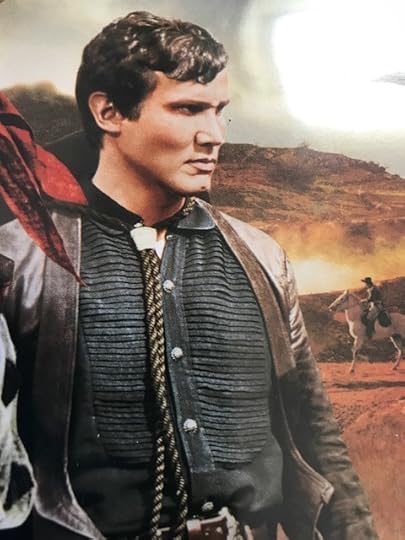
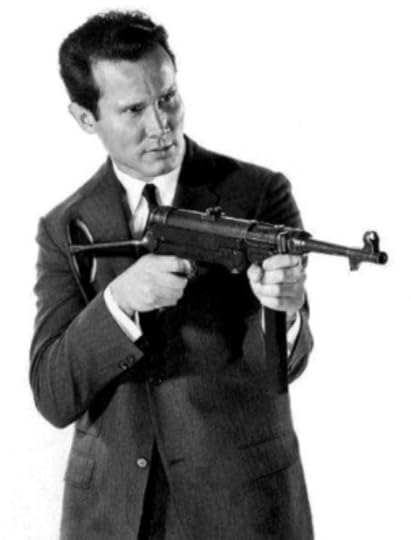
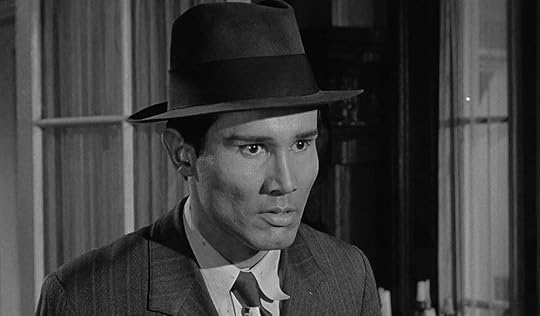
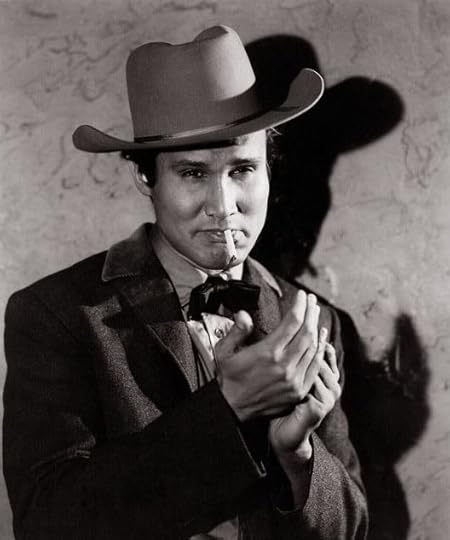
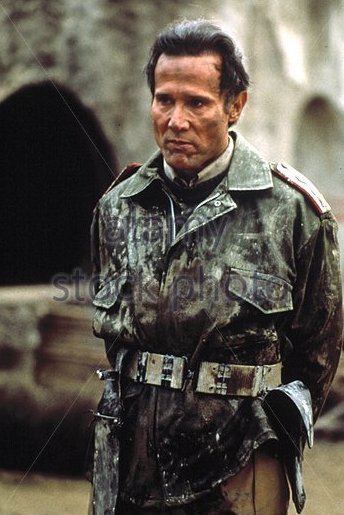
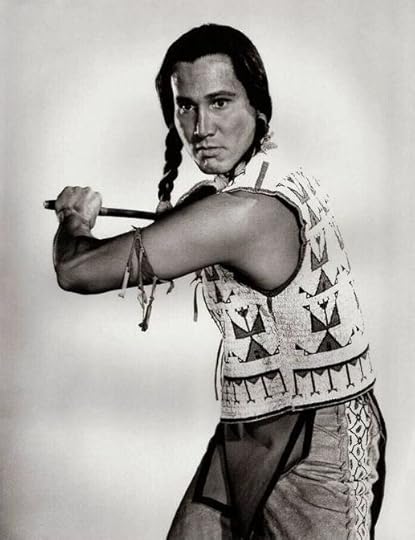
April 21, 2017
I Must Be Dreaming
Will you come along with me? I have this idea about film and why it can be so powerful, and why we relate to it so strongly. So come along and pretend that you are SEEING what I’m going to describe to you. Okay?
Here’s a man walking through a park. It’s a warm, sunny day, and he’s feeling good, and the park is green and flowered and it’s close to the ocean, on a bluff above the Pacific, like Palisades Park in Santa Monica.
The man is thinking about that great steak he had for lunch, and while he’s thinking about it, we SEE the steak, sizzling on a plate. Now we’re back with the walking man, ambling along. He has a habit of jingling the change in his pocket as he walks, and we SEE for a moment, right into his pocket, see his fingers fluttering that dime and two quarters.
Now we watch him choose a bench and sit, and very soon, a lovely young woman comes smiling toward him. He doesn’t know her. She asks, “Would you like me to do what I do?”
He’s surprised, wondering. He says, “Well, I don’t’ know. What do you do?”
“I dance,” she says, and she begins dancing right there in front of him, and she’s very good. She begins a twirl, and she twirls faster and faster until she is just ... a blur. And then this blur ... disappears!
The man stands up, stunned, and looks around. Where is she? He happens to notice, then, that below him, near the beach, there is a large yacht passing by. And there she is, on the deck of that yacht, waving at him.
So, what we’ve been looking at, what we have actually SEEN, must be on film, because of that cutting to a steak, to a pocket, because of that twirling, that blur, that yacht, a film can do all of that, but, no, I have not been describing a film. Then what else could it be? What else behaves like that? Oh, I know ... the human dream state. That’s right. A nighttime dream behaves like that, and I believe that of all the arts, film is the closest to the human dream state. I also believe that is why film can have such power over us, can capture us and sweep us anywhere, everywhere.
When we dream, we become, in a way, an entire movie company, building amazing sets, creating, for instance, a crowded antique shop with hundreds of objects cluttered together on the tables, the shelves. We choose these objects, instantly. We create all of it, and then we jump away from this shop and are captured now by the sight of a mammoth desert dune, and we hear thundering, and now we see, we SEE, six hundred horsemen riding over that dune, and all this time it is us, our subconscious, making a dream.
So the movie, a new art form, was invented only, what? One hundred and twenty years ago? And it captivated us very quickly, and soon it grew, with invention and imagination, into a more and more realistic vision that could take hold of us and yank us inside, inside of this Motion Picture, because, in a way, we have always been inside of it, and it has always been inside of us, every since we were able to dream.
#
Thank you for coming along with me on that exploration. There are other topics I want to share with you, but, for now, I want to guide you to the Family of Writers page of this site, where more good news keeps piling up. Please check it out.
April 5, 2017
Foreward INDIES and Upcoming Events
More good news arrived recently. My book WRITE! Find the Truth in Your Fiction was selected as a finalist in the writing category in the 19th annual Foreword INDIES Book of the Year Awards.
Thousands of independently published books are entered each year. Over 120 librarians and booksellers are in charge of the judging. Narrowed down to a small group of finalists, the winners will be announced on June 24th.
WRITE! is a teaching book packed with what I’ve learned as a professional writer over 45 years of creating novels, screenplays, and stage plays.
Conversational in style, my book will help a writer focus on making fiction feel real so that the work becomes deeper and richer, bringing the reader or audience inside so that they will live it, too.
A Press Release with contact info and more on this subject is available on the Press page.
Also coming up this month is a Business Expo in Santa Barbara on Saturday, April 29th from 8am till 2pm. at Fess Parker’s Doubletree Hotel, where I will have an ‘Author’s Table’ manned by a friend, Alison Toddhunter. She will have paperback copies of “WRITE!” for sale there. As a bonus, anyone who buys a copy of” WRITE!" will receive a FREE novel from the list of books I wrote in the 70s, 80s and 90s. These are overstocks from my former novel-writing days: “With a Vengeance,” “Keeper of the City,” and “Cheevey.” Two thrillers and a coming of age story.
And one more thing - on April 12 I will be addressing the Salt Lake City Film Society, presenting a seminar and a screening of my film: “Words and Pictures” with a Q&A. Busy month!
March 26, 2017
House of A Thousand Rooms
Being a writer is like living in a house of a thousand rooms. All the doors are closed. You walk down the dark hallways. You choose a door and stop and open it. You snap on a small lamp. You see some movement in the shadows, some images, now a face. More shadowy people arrive, and the room seems to widen. Something is happening just out of sight. You’re hearing voices now, the words are becoming clear. You begin, sometimes slowly and sometimes all at once, to see how these faces and places and voices are all coming together into one idea. You’re beginning to sense a meaning here, and just the possibility of a story, if only you can capture it and hold on to it and make it your own.
This image above is not something I need to communicate to my two sons, Justin and Zachary (Nico) or to Nico’s wife, Ami, because they are all writers too, with their own houses and rooms and stories. Being a family of writers means that there is much that we share, even without talking about it.
This month somebody must have tossed a bouquet into the air because all sorts of flowers are falling among the four of us. As new work is released, nominations for awards come in, and rave reviews show up. So let me guide you through all of this for your own reading and watching pleasure.

Ami Silber
Eva Leigh (Ami Silber’s author name) graces the Romance writing genre, bringing to it a real depth and power in her finely wrought characters and stories.
My very talented daughter-in-law, Ami Silber is a writer in the ROMANCE genre, bringing to that field a real depth and power through her finely wrought characters and stories. Writing under the name Eva Leigh (and formerly Zoe Archer) she has earned yet another triumphantMy very talented daughter-in-law is a writer in the ROMANCE genre, now writing under the name Eva Leigh (and formerly Zoe Archer) has earned yet another triumphant review for her work, a blend of fine writing and solid research in historical fiction. This new title is A Duke Until Dawn.
Here's the review:
Leigh’s magnificent Regency-era erotic romantic thriller, the first installment in the London Underground series (which has nothing to do with present-day London’s mass transit system), crosses class boundaries with abandon. Alexander Lewis, Duke of Greyland, believes he’s finally found love, but after one unforgettable night, the object of his affections vanishes without a word. Two years later, he learns that the affair was nothing but the end of a well-practiced ruse by beautiful Cassandra Blair, who’s been forced into a life of crime. When Cassandra is abandoned by her mentor and left to fend off angry investors and jilted employees, she turns to Alex for help. He reluctantly agrees, but insists they work together to retrieve the funds she’s owed. As they brave the unsavory areas of London, Alex’s wild side emerges and he gets to experience life outside of wealthy enclaves, while Cassandra learns that not all “aristos” are selfish and uncaring. With her dedication and loyalty to Alex, Cassandra challenges the old adage of “no honor among thieves,” and Alex breaks free of his ducal shackles to claim his beloved despite her bloodline. A variety of weapons, plenty of riffraff, a couple of wanton and witty friends, and a hint of kink make this a fast-paced and seductive treasure.
Her other books have earned starred reviews in Publisher’s Weekly and glowing words from Romantic Times. Last year’s Scandal Takes the Stage was selected by the Washington Post as one of the three BEST Romance novels published last November and gained her a nomination from Romantic Times Magazine for Best British-Isles Set historical works.
She is a graduate of the prestigious MFA writing program at Iowa State. Visit her at www.evaleighauthor.com.
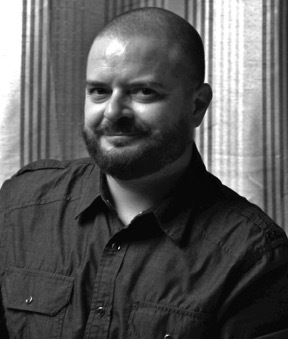
Zachary DiPego
Writing under the name Nico Rosso, my son and Ami’s husband is also an established writer in the Romance field and has created a new Romantic Suspense series called AUTOMATIK. Book 2 in this series, One Minute to Midnight, has been nominated for a Romance Writers of America RITA award in Romantic Suspense! A second book in this series, Count Down to Zero Hour, received a starred review in Publisher’s Weekly. These are down-to-the bone, noir-tinged, Romantic Action books. See all his books at www.nicorosso.com.
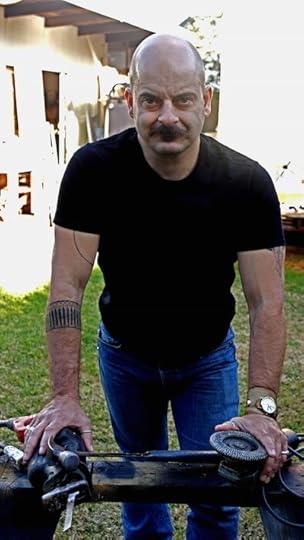
Justin DiPego
My son, Justin DiPego, a screenwriter, has a new film in release called The Ghost of New Orleans, now available on cable and DVD and starring Terrence Howard, Josh Lucas and Lake Bell! One review called it “A haunted noir thriller.”
Justin is also a personality in the DIY field, winning awards and maintaining his own articles and high-style videos at www.doitwithjustin.com.
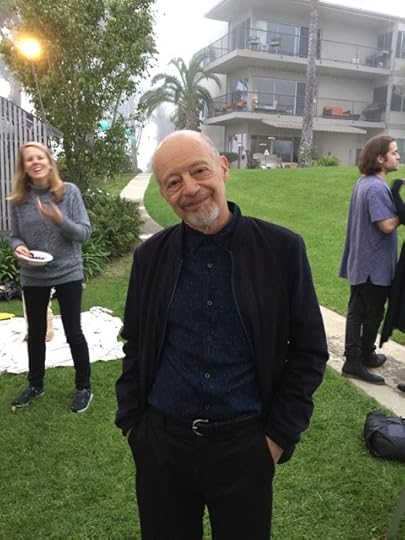
Gerald DiPego
My book on Creative Writing, containing all the tips, examples and methodology from my 45 years in in the field, was just announced as a nominee for the BOOK OF THE YEAR award presented by FORWARD Indies, the organization honoring independently published books. Please check out the testimonials and the reviews for this how-to on Amazon (So far, 23 reviews, all five-star) and on this site. WRITE! Find the Truth in Your Fiction is available in paperback and also as an ebook.
Maybe, next time you turn a page or watch a movie screen, you’ll be sharing with us whatever we found in one of those shadowy rooms.
Come on in.
March 10, 2017
All Good News!
Hope you’re very well. Letting you about some pieces of good news: My story, Latin Jazz? is now published in a literary magazine called Dime Show Review. This is Volume 2 and includes essays and poems along with the stories. You can find it online at www.dimeshowreview.com or pick up a paperback copy on Amazon. (Speaking of poetry – you’ll find a poem of mine when you scroll down – had my father in mind when I wrote it. Hope you enjoy.)

Also announcing here a release of a movie I wrote with my son Justin called The Ghost of New Orleans (original title: The Little Murder.) It has a solid cast, and it’s so good to see that writing credit with both our names. That happened once before on a TV film we wrote called Parallels. Fun. And BTW, my other son Zack and his wife Ami both write books in the Romance genre under the names Nico Rosso and Eva Leigh or Zoe Archer. Fine writers all.

And on April 12, I’ll be in Salt Lake City giving a talk to the Film Society there presenting “Ten Tips From the Writing Trenches,” all material culled from my how-to book on creative writing: WRITE! Find the Truth in Your Fiction. Which means…making fiction FEEL REAL to the reader. This book is also online in both digital and paperback formats from Amazon.
After the talk, I’ll be screening my film from 2015, Words and Pictures, staring the very exciting duo of Clive Owen and Juliette Binoche. Check it out if you haven’t seen it yet – streaming or DVD or Blu-Ray.
Hope you and yours are fine. We’re thriving with two new standard poodle pups joining our family!
(Oh, here’s that poem)
The Highway
I’m taking California’s 101 South to L.A.
nd the ocean’s on my left, no, on my right,
and I’m doing 75 past the site of Port Hueneme
so I touch my neck, feeling for the chain,
pull out a navy I.D. tag, and shake it so it jingles.
Maybe somebody sees me from the other lane, wondering
why that old man is jingling his necklace that way,
so I explain and say my dad was a sailor in ’44
stationed at Hueneme and after that had a long
life and a grocery store, and when he died, there
wasn’t much. I chose the I.D. tag and my brother
picked the watch, so when I pass this place
I picture dad in the photo in his sailor clothes,
white hat, happy and bewildered face, 35
years old and his youngest son only 3, so I didn’t
know him yet, and he didn’t know me, but maybe
I was on his mind, and now he’s on mine when I
pass here and see the sign, so I jingle the tag to say
hello to the sailor he used to be and hope the sound
somehow connects him to me, because there wasn’t
nearly enough connecting, though he lived to 82,
and maybe there never is, is what I’d say to you or
whoever saw me in the red Prius on 101, a man of
70 waving a chain because he’s still somebody’s son.

February 6, 2017
Expedition to New Zealand - By The Intrepids
Hail from the Chief! Big warm hello to all of you. After the tour I booked a helicopter ride over Milford, and it was, of course, beautiful! Chopper puts down on a mountain top glacier for a while. One of my sons said this looked like a James Bond shot. The other said just one word: Badass.

Ours was an expedition, an adventure. It was so much more than a “sight-seeing” trip. You want to see the wonderful statue of David in Florence? Well, you walk into the Academia Galleria, and there he stands. The Mona Lisa – she’s there in the Louvre, hanging on a wall. Those are sight-seeing trips and worthy in their own right.

But I feel like we earned the sights we saw. The wind never quite blew us over, the rain never daunted us, (the hail, either!) and if getting somewhere took some doing, well, we did it. Very soon, our group became a “We.” You people who gathered for this expedition were gracious, fun and easy to travel with, without one exception out of 21 souls!

I came wanting to stand face to face with all the stunning beauty I had seen in pictures – and the realities were even more amazing than I dreamed.

I came, also, to be face-to-face with the Maori culture and history, which I’ve studied, and this, too, went beyond my hopes. Face to face with a Maori warrior (with a spear!) sending me his power in his Haka. (What a moment of travel! Like a time machine, and a great privilege for which I thank Lee and Karen and all of you.) And I thank, again, the dear Karen for taking us inside the settlement, the holy room, and inside her culture with love and grace.
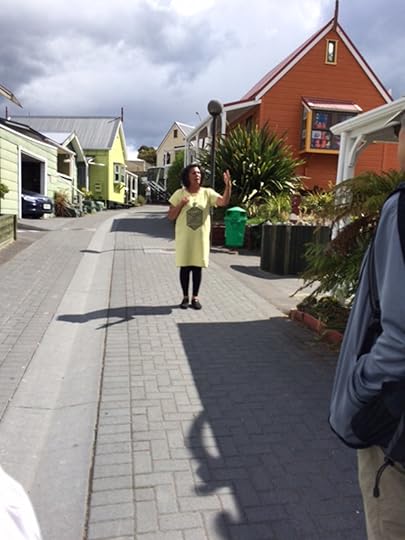
Lee was our perfect guide/mother/friend – who always knew where we should be and when and the best way to get there, available for any question, and sharing her Kiwi life with us, a major, major(!) plus on the trip.
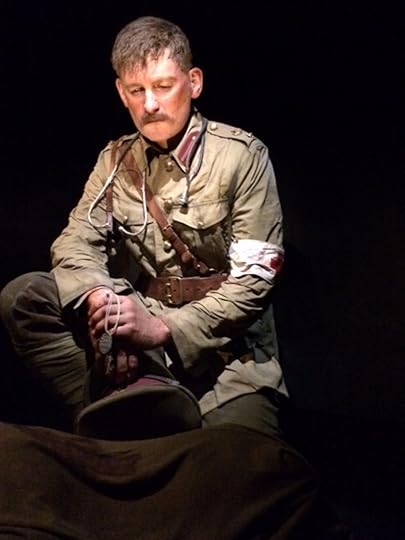
David Scott Silverberg was a surprise to me, not only for his depth of knowledge, but for that wonderful exuberance that had him explaining things with his whole body (!) because the facts are so exciting to him, and, so, he made them exciting to us. (Well, okay, some of us napped in the planetarium, but, hey we were tired that day, and I’m old). And then David would spoil us on the bus rides by reading (and very well) short stories by New Zealand authors, so that we gained yet another level in the study of a country and its people.

So I came away with many treasures: the day of the Haka, (sounds like my next film!) The wild ride through beautiful and dramatic Doubtful Sound, the amazing moments in that cave! (Just hearing our guide singing toward the roof of that great, ancient “cathedral,” let alone the dazzling glow worms (glimmer, glimmer). The wonderful land of the geysers and hot pools, and the use of that seemingly magic inner-earth to heat the Maori’s homes and cook their food. And the fine times and talks with all of you.

Let me now press noses and foreheads with each one of you. My wife enjoys sharing that lovely way of greeting with me, but, no, she doesn’t refer to me as Chief. Sigh.

Wishing you all splendid days.
Love, Jerry
January 12, 2017
Movies We Watch Again ... and Again - The Hustler
Why do we watch a movie more than once? Maybe we were so stunned by the film that, by watching it again, we can study it more deeply and gain more understanding of its riches, (for me, Birdman is a recent example). Then we might decide to see that same film yet again, because now our eyes can visit every part of the screen, pick up every background nuance, squeeze out every drop of meaning.
Other films we see may not stun us or challenge us, but seep into our emotions and go so deep that we well-up, or even weep, either with sorrow, or with a deep joy, and these films we re-watch not for the studying but — well, it’s like visiting a dear friend for the comfort you know you will receive, and you want to feel that again.
For my next example of a film I keep rewatching, and believe I always will, I’ve picked The Hustler, 1961, Starring Paul Newman, George C. Scott and Piper Laurie. This one is a heavyweight, and it goes very deep. If I had to pick one favorite film (I’d hate to have to do that!) it would either be The Hustler, On The Waterfront or The Seven Samurai. (There, I’ve committed myself, and yet I hear dozens of other titles shouting in my ears).
I have seen “The Hustler” at least five or six times over the years, and I’ve used it my teachings. It’s a tough film, but also very tender. It’s a gritty film, but also gives some hope, and it’s a beautiful film – a black and white journey through gray streets, dark pool halls, and a small, grim apartment that makes Newman’s character (and makes the viewer) feel caged, but the direction by Robert Rossen and the photography by Eugen Schufftan somehow find the poetry in these settings, without ever calling attention to their choices.
Paul Newman’s character, an iconic figure to me, is Fast Eddie Felson, a pool hustler who has the charm to con women into bed and men into shooting a friendly game of pool with him. He plays them along until they want to raise the bet, and then, when the stake is at its highest, beats them at the game without ever, ever revealing just how good he is.
Because Eddie Felson is not just good -- he’s great. He may be a con artist, he may have little schooling and rough edges, but at pocket pool, he’s an artist. He and his partner-manager have conned their way across half the country to end up in Ames, Iowa, to play another master at the game, in fact, the ruling master, whose name is Minnesota Fats, and who is played with a very believable and very delicate edge by Jackie Gleason.
Gleason had one of the most successful comedy shows on early TV and created icons like his bus driver husband in the Honeymooners, yet when he accepted the rare role in a serious film, he showed just how flat-out good he could be, moving around that pool table, with all his girth, like a dancer, and with the solid believability of a guy who had grown up in halls like this dark and smoky pool room – because he, in fact, did and had the chops to play the role for real.
You might think that that what I’ve described so far is enough to make a fine movie, and it is, but I’ve just started. One of most sharply-etched film characters ever is also in this pool room. He’s not a player. He’s a gambler, a quiet, well-dressed man-who-watches, and gauges people and seems to know their worth, and he’s a user, not so much "played" byGeorge C. Scott – but "owned" by this fine and powerful actor.
Okay, now we have a full ensemble of fine characters to — wait a minute - there’s one more. We can’t leave out Piper Laurie, a memorable and distinctive actress who plays the hapless Sarah. She’s an alcoholic wanting to be a writer, and she falls hard for Eddie Felson, who comes to share her apartment, first in a miasma of drink and sex, but then…the deeper feelings come.
There’s a memorable scene among many great scenes in this film where Eddie and Sarah walk to a park on what is probably the movie’s only shot of a true sunny day. Eddie has lost a major game and is wondering if he is what George C. Scott said he was, a born loser. Sarah asks the right questions – what IS a loser and, Eddie, how do you FEEL about the game?
Newman has a wonderful monologue here, showing that he’s so much more than a hustler, and that when he’s moving around that table he feels like the pool cue is part of him, an extension of his arm with nerves and muscles – and Sarah looks at him deeply and knowingly and says – you’re not a loser. Most people never get to feel the way about anything. You’re a Winner, Eddie.
Now the cast is complete, and we begin to see that The Hustler is the story of a man who has an angel, a half-broken angel named Sarah, on one shoulder and a devil on the other shoulder, the malevolent user that Scott plays, and the heart and soul of Eddie Felson is in the middle, pulled one way, pulled the other.
No, I won’t tell you how this plays out. I love this film far too much to rob you of the deep, wrenching and loving struggle that takes place here. It’s a powerhouse, and I’ll watch it and live it again right with you.
I envy those of you who will see it for the first time.
Enjoy.
